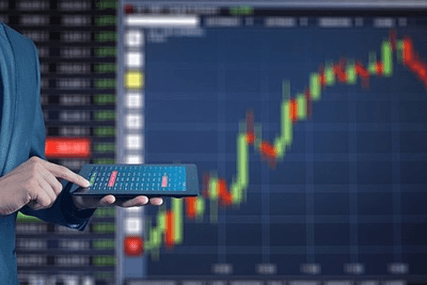Stock Exchange

Understanding the Role of Stock Exchanges
The Stock Exchange Workshop began with an in-depth exploration of the fundamental role that stock exchanges play in the global economy. Participants learned how stock exchanges serve as platforms for buying and selling securities, enabling companies to raise capital while providing investors with opportunities to grow their wealth. Facilitators explained the structure and functions of major stock exchanges, such as the New York Stock Exchange (NYSE), NASDAQ, and emerging markets like India’s NSE or BSE.
This session also highlighted the importance of stock exchanges in fostering transparency, liquidity, and price discovery in financial markets. Attendees gained insights into how indices like the S&P 500, Dow Jones, or FTSE 100 reflect market performance and influence investor sentiment. By understanding these foundational concepts, participants were able to appreciate the broader economic impact of stock exchanges and their significance in wealth creation and corporate growth.
Basics of Trading and Investment Strategies
A key highlight of the workshop was the session on trading and investment strategies , where participants explored various approaches to navigating the stock market. The facilitators introduced attendees to different types of trading, including day trading, swing trading, and long-term investing, explaining the risks and rewards associated with each method. For instance, day traders focus on short-term price movements, while long-term investors prioritize fundamentals like earnings growth and dividend yields.
Participants also learned about portfolio diversification and asset allocation as tools to manage risk and optimize returns. Practical exercises allowed attendees to simulate trades and analyze real-world case studies of successful investment strategies. Additionally, facilitators discussed the importance of setting clear goals, conducting thorough research, and maintaining discipline in volatile markets. By the end of this segment, attendees had a clearer understanding of how to align their trading or investment approach with their financial objectives.
Technical and Fundamental Analysis
The workshop featured a detailed session on technical and fundamental analysis , equipping participants with the skills to evaluate stocks and make informed decisions. Technical analysis focused on using charts, patterns, and indicators—such as moving averages, relative strength index (RSI), and candlestick patterns—to predict future price movements. Attendees practiced identifying trends and entry/exit points, gaining hands-on experience with popular trading platforms and tools.
In contrast, fundamental analysis emphasized evaluating a company’s intrinsic value by examining financial statements, management quality, industry position, and macroeconomic factors. Participants learned how to interpret key metrics like price-to-earnings (P/E) ratios, earnings per share (EPS), and debt-to-equity ratios. By combining both approaches, attendees gained a holistic perspective on stock evaluation, enabling them to make well-rounded investment decisions. This session was particularly valuable for those looking to deepen their analytical skills and refine their trading strategies.
Navigating Market Volatility and Risk Management
Another critical focus of the Stock Exchange Workshop was helping participants understand how to navigate market volatility and implement effective risk management strategies. Facilitators discussed the factors that contribute to market fluctuations, such as geopolitical events, economic data releases, and investor sentiment. Real-world examples of market crashes and recoveries were analyzed to illustrate the importance of staying calm and strategic during turbulent times.
Attendees also learned practical techniques for managing risk, such as setting stop-loss orders, diversifying investments, and using hedging instruments like options or futures. The session emphasized the need for a disciplined approach to investing, avoiding emotional decision-making, and maintaining a long-term perspective. Participants were encouraged to develop personalized risk tolerance profiles and contingency plans to protect their portfolios from unexpected downturns. By mastering these strategies, attendees left the workshop better prepared to handle uncertainty in the stock market.
Networking and Knowledge Sharing Among Participants
One of the most impactful aspects of the Stock Exchange Workshop was the opportunity for networking and knowledge sharing among participants. Throughout the event, attendees engaged in interactive discussions, group activities, and informal conversations with fellow investors, traders, and industry experts. These interactions fostered a collaborative environment where participants could exchange ideas, share experiences, and learn from one another’s successes and challenges.
The workshop also included structured networking sessions, such as panel discussions and breakout groups, where attendees could connect with seasoned professionals and mentors. For example, a novice investor might gain valuable advice from a seasoned trader, while a business owner could explore potential partnerships with other participants. These connections not only enriched the learning experience but also created a supportive community of individuals passionate about financial markets. By the end of the event, many participants expressed gratitude for the relationships they formed and the inspiration they drew from their peers.
